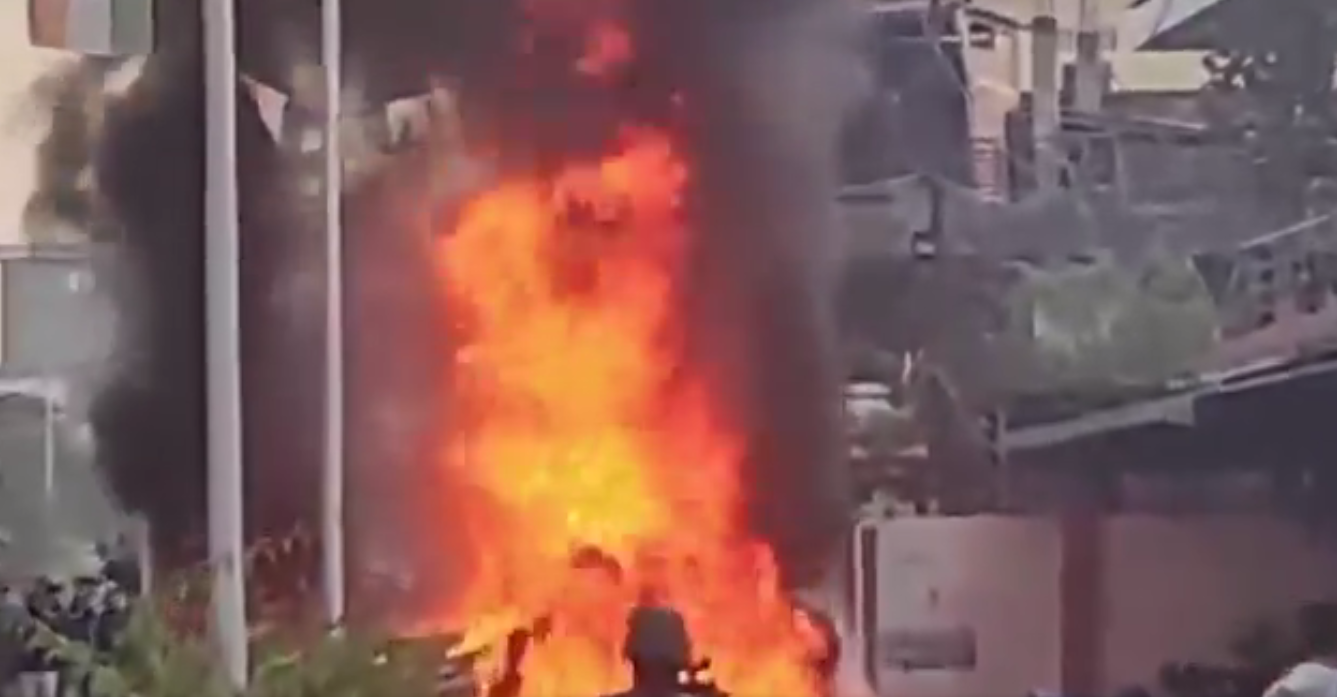The situation in Manipur has reached a critical point with the imposition of a total curfew in Imphal following a series of violent incidents that have gripped the state. On November 16, 2024, unrest erupted as irate mobs targeted properties belonging to public representatives, including state ministers and MLAs. The violence prompted immediate action from the authorities, resulting in the arrest of 23 individuals involved in acts of arson and ransacking in Imphal East, Imphal West, and Bishnupur districts. Recovered from these individuals were a .32 pistol, seven rounds of SBBL, and eight mobile phones, indicating the severity and premeditation of the unrest.
The violence has led to significant disruptions in Manipur, a state already grappling with longstanding ethnic and political tensions. Eight people sustained injuries during the dispersal of mobs by security forces using tear gas. In response to the escalating violence, the government imposed a total curfew in Imphal and suspended internet and mobile data services for 48 hours to curb the spread of misinformation and prevent further coordination among protestors.
The unrest follows the killing of six civilians, including three women and children, in Jiribam district, which has become the flashpoint for widespread protests. The tragic deaths have fueled anger among the population, sparking retaliatory actions that included the burning of properties owned by multiple state ministers and MLAs. The deployment of heavy security forces, including the Army and Assam Rifles, has been necessary to control the situation and prevent the violence from escalating further. Flag marches have been conducted to reinforce security and reassure residents, but tensions remain high.
.@narendramodi ji,
— Mallikarjun Kharge (@kharge) November 17, 2024
Under your double engine governments, “ना Manipur एक है, ना Manipur Safe है”
Since May 2023, it is undergoing unimaginable pain, division and simmering violence, which has destroyed the future of its people.
We are saying it with utmost responsibility that…
The political ramifications of the ongoing violence have resonated beyond Manipur’s borders. Congress President Mallikarjun Kharge took to social media to accuse the BJP-led central and state governments of failing to maintain unity and peace in the region. In his post, Kharge stated, “Na Manipur ek hai, na Manipur safe hai,” highlighting that since May 2023, the state has been mired in violence and suffering. He further alleged that the BJP’s approach to governance was fueling division for political gain, asserting that “the BJP deliberately wants Manipur to burn, for it serves its hateful divisive politics.”
Kharge’s criticism also underscored the extent of the human cost, noting that at least 17 people have died since November 7, 2024, and new districts are being affected as violence spreads, even threatening to impact neighboring northeastern states. The Congress leader lamented the absence of proactive leadership from Prime Minister Narendra Modi and expressed doubt that a future visit by him would be received with forgiveness from the people of Manipur.
The central government’s response included Union Home Minister Amit Shah’s decision to cancel his scheduled election rallies in Maharashtra and return to Delhi to address the unfolding crisis. This decision came after the situation in Imphal deteriorated further, with security forces struggling to contain the protests and maintain law and order. Shah’s return underscores the gravity of the situation and the need for immediate high-level intervention.
The unrest in Manipur underscores the complexities of maintaining peace in a region marked by ethnic diversity and historical grievances. While the curfew and deployment of additional security forces aim to restore order, the root causes of the violence—deep-seated ethnic tensions, political discontent, and mistrust in governance—remain unresolved. The current crisis highlights the urgent need for dialogue, comprehensive conflict resolution strategies, and genuine efforts to bridge the divides within the state.
As Manipur grapples with these challenges, the path forward requires not only strong governance but also empathy, inclusion, and a commitment to peace that addresses the concerns of all communities involved. The coming days will be crucial in determining whether the state can navigate through this turmoil or if deeper intervention is necessary to prevent further violence and disintegration.
- 14439 reads










Add new comment